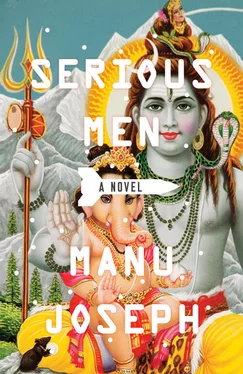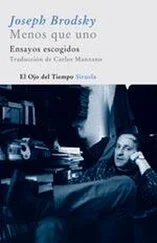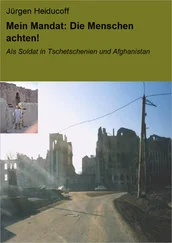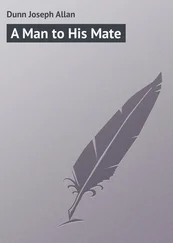Acharya regarded the letter without interest. Then he returned to Topolov’s Superman.
In the peace of the dormant equipment, shrouded in their plastic covers, Oparna sat on the main desk swinging her legs. She was staring at the phone. The murmurs of subterranean machines filled the room as the door opened. As it slowly shut, the haunting silence returned. Nambodri walked in delicately, like an explorer. He looked up at the ceiling and in other directions, and smiled. He stood by Oparna’s side and looked at her without a word. Unable to bear his phoney intensity any more, she turned to the phone and resumed her vigil.
‘Why are you doing this?’ he asked. She removed her hair — band, held it in her mouth, and tied her hair in a fiercer knot.
‘You must ask the man, don’t you think?’ she said.
‘The victim, are you?’ he asked.
‘Yes.’
‘He would never even think of doing something like this. Oparna, why don’t you tell me what this is all about?’
She began softly to hum a rhyme, probably a Bangla rhyme. She was suddenly scary.
‘I’ve heard some stories about you and him,’ Nambodri said. ‘Something happened? And this is some kind of a revenge? Woman scorned, or some rubbish like that?’
‘Why don’t you come later, Mr Runner-Up?’
That disturbed his poise but just for a moment. He told her, almost fondly, ‘You’re being stupid, Oparna. This is not the way to do it. You’re almost there but you have to be careful. Acharya is not easy to destroy.’
He could see clearly, in the nonchalant way that she was sitting, the way she was swinging her legs, her nervous hum and her paranormal expectation of the phone to ring, an insanity that he might never have suspected before. He felt afraid, not only to be standing there in the deserted basement lab, but for the times when he had tried to flirt with her, because if she had granted him the possibilities, his fate would probably have been far worse than Acharya’s.
‘You must listen to me carefully, Oparna,’ he said.
She slouched a bit and yawned. ‘This is not the time for desperate mentors to come,’ she said. ‘What is done is done.’
Nambodri leaned on the desk and said, almost in a whisper, ‘Oparna, there is something you must understand. Even before you were born, Arvind Acharya was a name that floated once every year as a probable Nobel recipient. He is big. He is very big. Nobody is going to believe you. He has to just say he was framed and your game is over.’
‘There are people who’d like to believe me. I know that much,’ she said.
‘That’s true,’ Nambodri said thoughtfully. ‘But writing a letter to the Ministry is not the way to do it. You’ve got to understand. There are people who hate him but there are also very powerful people who love him. The game now could go either way. So you must go to the press right now. It has to be all over the papers before the internal inquiry even begins. People have to see this news, not hear it from their friends. Do you understand? It has to be news, not gossip. People believe news. You’ve got to go public with this story, Oparna.’
She looked at him innocently, almost like a child, and said, ‘But isn’t that unethical?’
Then the phone rang, and a fond smile appeared on her face.
Ayyan Mani said two soft ‘hellos’ to the dictaphone and played his voice back to check an instrument he had never held with so much reverence before. It was, until this day, an enduring symbol of his plight, a reminder that he was nothing more than a large Indian recorder appended to a small Japanese one. But that morning, his unfailing instinct told him that this small silver thing was going to produce a treasure which he could somehow encash in the decisive war of the Brahmins that was now unavoidable. He did not have a plan, but he knew he would soon find one.
Oparna arrived without the discomforts of sanity. It was almost the same face that Ayyan had seen one morning, many months ago, when she had come with her hair untied and dressed in clothes that seemed to have a purpose. She had come to propose then. Now, there was a deep wound inside her and it showed on her face in a slanted smile. It was a misery that he recognized as a fate of love. He had seen this many times from very close, very close — that perilous distance from where the face of any woman would look ugly, and in the agony of being spurned must quickly choose to either kiss or spit. In the pale rooms of the lodgings where he used first to soften his aspiring wives with caresses, and then bid them a final farewell with a clear head — which is another form of cruelty in love — he had seen this face of Oparna. And that made him grin. At how he had escaped from the treacherous minefields of freedom unscathed, into the safety of marriage. While one of the most intelligent men alive was about to be mutilated.
Free love, Ayyan knew in his heart, is an enchanting place haunted by demented women. Here, every day men merely got away. And then, without warning, they were finished. The girl would come and say, like a martyr, that she was pregnant, or would remember that all the time she was being raped, or her husband would arrive with a butcher’s knife. Such things always happened in the country of free love. Ayyan Mani had fled in time from there into the open arms of a virgin. But Acharya had fled the other way.
Oparna found her man exactly the way she had imagined. Acharya was sunk in his massive black chair, his beautiful face staring in blank confusion, like an infant’s. She sat across the table from him and smiled.
He asked in a voice that was without force or expectation, ‘Why, Oparna?’
She made an exasperated face as if she had hoped to talk about more interesting things.
‘What did you expect, Arvind?’ she said, almost with compassion. ‘You sleep with me till your wife comes back from her vacation and then ask me to get out of your life.’
‘I thought you understood,’ he said, and at that moment, when he said it, he conceded to himself that he didn’t know what he meant by that.
‘No, Arvind,’ she said, her words hurried and angry now. ‘I did not understand. And I’ve never understood it when men tell me “it was fun but now we have to get rid of you”.’
‘So you do this?’
‘Try to understand. All my life, men have humiliated me. I don’t know why but that’s what I remember of men. Then I go mad over an old man. And he too dumps me. I wanted to kill you. I really did.’ She studied her palm and the slender fingers which she thought looked a bit too bony and aged.
He did not recognize this woman who was sitting in front of him. He felt an excruciating sympathy for her, and then he remembered that it was he who was on the verge of being destroyed. ‘What do we do now?’ he asked feebly.
‘We are finished. That’s all. Together. Your reputation is now over. And no one will hire me again,’ she said in an informative way. ‘It’s a mess, Arvind. Even if you scream from the top of the water tank that you are innocent, you’re finished. And there are enough vultures here who want you out. They already know what they must do.’
‘So there was nothing in the sampler?’
‘Is that what you are worried about? If there were aliens in the sampler? That’s very rude, you know.’
‘Tell me, Oparna, was there anything in the sampler?’
‘There was nothing in it. Just air.’
He found it ridiculous that what pained him more at the moment was that the Balloon Mission had completely failed. He turned to the window and tried to accept the shock of the failure. He had the courage to accept the punishment of Oparna, and the wisdom to understand that it is in the nature of love to be disproportionate with both rewards and retributions. But he was shattered by the fact that he had to now forsake the joy and relief of having found aliens in the stratosphere. He suspected that he might not get another shot. And for the first time in his life he understood the fear of a bleak, vacant future.
Читать дальше












